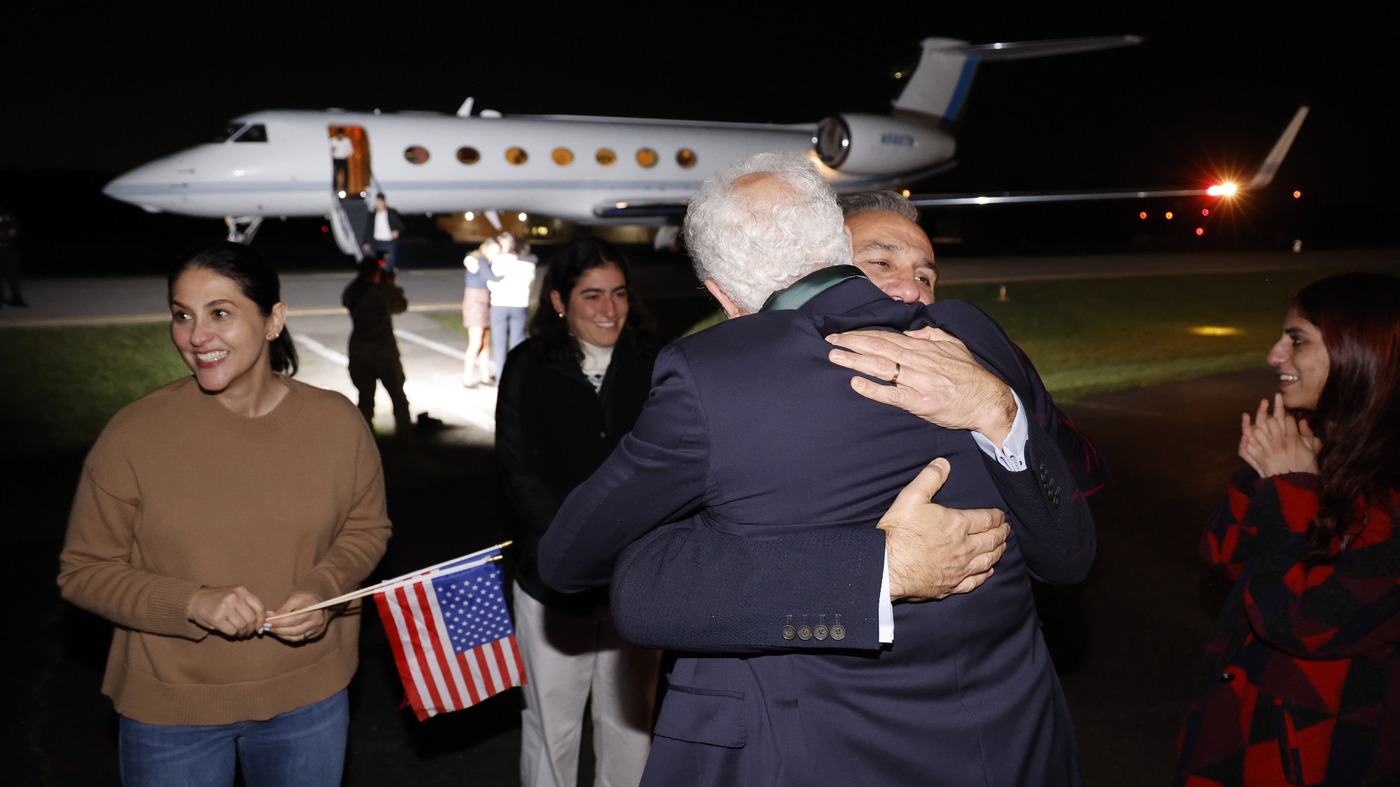
The Americans were released in exchange for oil money, and Iranians were released in the US
Five Iranians are on their way to the United States in exchange for Iranians released from the U.S. Embassy and Tehran’s access to $6 billion in oil revenues
Five Americans who have been held in Iran for years are on their way to the United States in return for Iranians released from U.S. custody and Tehran’s access to $6 billion in frozen oil revenues, according to a senior U.S. official.
In 2019, the Trump administration released an Iranian scientist, Massoud Soleimani, who was accused of violating trade sanctions, to get the release of Xiyue Wang, a Princeton University graduate student held in Iran for three years. The following year, Trump also released an Iranian American accused of violating sanctions, coinciding with Iran’s release of U.S. Navy veteran Michael White, held in Iran for two years.
Three other Americans, including an environmental activist, are also in jail in Iran, and two others are not public. Tahbaz’s wife and Namazi’s mother — who had not been allowed to leave Iran — were also flown out, according to U.S. officials.
But the administration says the money already belongs to Iran — paid by South Korea for Iranian fuel — and its use will be monitored and limited to items not under U.S. sanctions. The White House says the funds, held in Qatar, can be cut off again at any time.
The U.S. is also granting clemency to five Iranians or Iranian Americans, most of whom were charged with — or were convicted on charges of — violating sanctions laws. According to previous reporting by the Associated Press, one, Mehrdad Ansari, is an Iranian sentenced to 63 months in prison for obtaining equipment that could be used in missiles or nuclear weapons. Another, Kambiz Attar Kashani, is an Iranian American sentenced in February to 30 months in prison for buying high-tech electronic gear. Some of them may be able to stay in the U.S. because they have U.S. citizenship.
Michael McCaul, the House Foreign Affairs Committee Chairman from Texas, was one of the major Republicans who disagreed with the deal.
Meanwhile, the administration has stressed the importance of getting unlawfully detained Americans back home and says it has not lifted any sanctions on Iran as part of the agreement.
There have been a number of prisoner deals between the two countries going back to 1981, when Iran released 52 hostages from the U.S. Embassy in Tehran in return for the U.S. lifting economic sanctions and unfreezing Iranian accounts.
The new prisoner swap takes place as there have been contradictory signs about the U.S.-Iran relationship. Iran released Siamak’s father, Baquer, in October. He had been held since 2016, when he went to try to help his imprisoned son.
Iran has slowed the production of nuclear fuel, which had increased after the White House withdrew from the Iran nuclear deal.
The US maintains that Iran continues to harass ships with U.S. ties as they pass through the Persian gulf. The Pentagon recently sent 3,000 sailors and Marines to help protect shipping. The prisoner agreement did not open the way for new indirect talks with Iran, according to a senior U.S. official.
After years of being separated from their families, the former prisoners were hugging and crying after arriving at the airport. They reached the U.S. after being flown out of Tehran and to Doha, Qatar, on Monday.
After landing, the freed prisoners and their loved ones stood together in front of the camera, yelling “Freedom!” The Associated Press is correct. Two female relatives of prisoners had previously been forbidden from traveling, but they were included in the group.
Afriabi, a U.S. Senator, and the Iranians: The Case against the Propagation of Nuclear Devices in the United States
“What I want more than anything is assurance that no one else will know the interminable anguish that my family and I experienced,” he said. Unfortunately, many are suffering those problems right now.
The exchange of money and prisoners has been criticized, especially by President Biden’s political opponents who say he is rewarding Iran’s provocative detentions of U.S. citizens.
He said the money belonged to the Islamic republic of Iran. “And naturally, we will decide, the Islamic Republic of Iran will decide, to spend it wherever we need it.”
While living in the United Arab Emirates and Germany he was sentenced to 63 months in a prison for his role in a plan to obtain equipment which could be used in a variety of sensitive applications.
A Canadian national is charged with buying lab equipment that is under sanctions and has nuclear non proliferation restrictions. The Justice Department says that he arranged for it to be shipped to Canada, as well as to the United Arab Emirates and Iran.
A political scientist and author who studied in the United States was charged in the fall of 2016 with being an agent for Iran. To journalists and politicians, Afrasiabi was supposed to be a neutral expert on Iran but he was actually hired by the Iranians.

